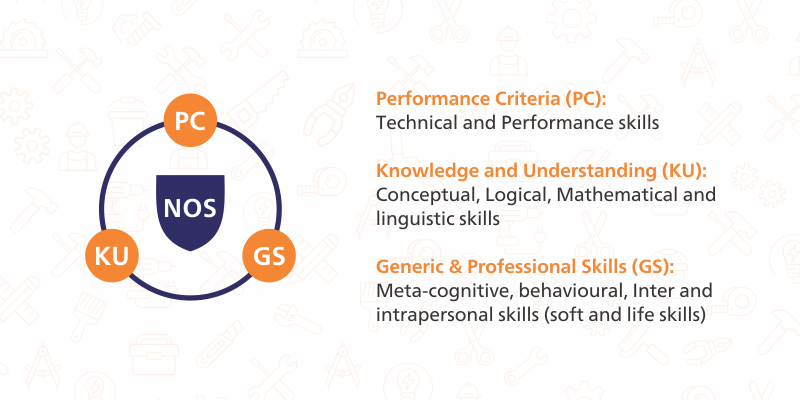A Qualification Pack (QP) defines the set of NOS which are aligned to one Job Role. A QP is available for every job role in each industry sector. These drive both the creation of curriculum and assessments.
Following are the components of NOS and QPs:

Qualification:
Qualification is a formal outcome of an assessment and validation process obtained when a competent authority determines that an individual has achieved learning outcomes to given standards.
Qualification File:
Evidence that a qualification meets NSQF requirements is gathered together in a Qualification File document. The Qualification File (QF) is the template designed to capture all the necessary information to establish NSQF compliance for a Qualification.
National Skills Qualification Framework (NSQF):
is intended to bring together technical, vocational and general qualifications and organize them according to 10 levels of knowledge, skills and aptitude. Level 1 is the most basic and level 10 the most complex level. These levels are defined by level descriptors or domains that set out learning outcomes on a scale of increasing complexities.
A learning outcome in the NSQF is the statement of what a person knows, understands or can do on completion of a learning process, and which would be expressed in terms of knowledge, skills and competence.
Each level of the NSQF is described by a statement of learning outcomes in five domains known as level descriptors.
These five domains are:
- Process
- Professional knowledge
- Professional skill
- Core skill
- Responsibility
The NSQF is anchored by the NCVET and is being implemented through the National Skills Qualifications Committee (NSQC).



































